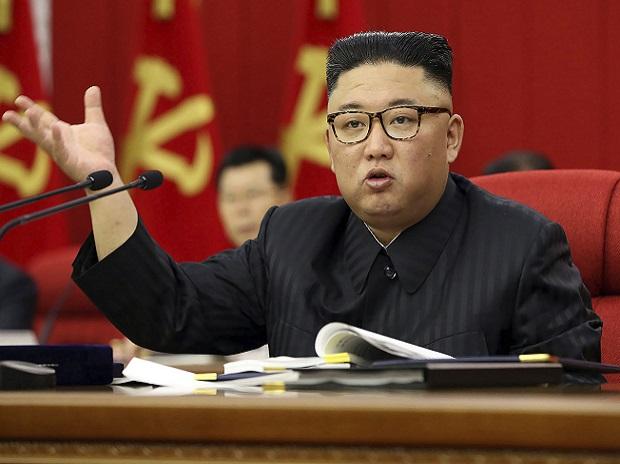North Korea fired what was believed to a ballistic missile on Tuesday, South Korea's military and the Japanese coast guard said, the second apparent missile launch in less than a week after the reclusive state's leader urged more military advances.
The suspected ballistic missile launch was detected around 7:27 a.m. (2227 GMT) from an inland area of North Korea toward the ocean off its east coast, South Korea's Joint Chiefs of Staff (JCS) said in a statement.
The projectile appeared to have landed outside of Japan's exclusive economic zone (EEZ), the Kyodo news agency reported, citing government sources in Tokyo.
"That North Korea continues to launch missiles is extremely regrettable," Japanese Prime Minister Fumio Kishida told reporters, noting the United Nations had just finished holding discussions on how to respond to last week's launch of what North Korea claimed was a "hypersonic missile." The launches by nuclear-armed North Korea underscored leader Kim Jong Un's New Year's vow to bolster the military to counter an unstable international situation amid stalled talks with South Korea and the United States.
"The (South Korean) military is maintaining a readiness posture while closely monitoring related trends under close cooperation between (South Korea) and the U.S. in preparation for additional launches," the JCS statement said.
South Korean and U.S. intelligence agencies are conducting detailed analysis for additional information, it added.
'SIGNIFICANT THREAT'
Last week, South Korean military officials cast doubts on the capabilities of the "hypersonic missile" North Korea claimed to have test fired on Wednesday, saying it appeared to represent limited progress over Pyongyang's existing ballistic missiles.
Tuesday's apparent launch came a day after the United States mission to the United Nations, joined by France, Ireland, Japan, the United Kingdom, and Albania, issued a joint statement condemning last week's test.
"These actions increase the risk of miscalculation and escalation and pose a significant threat to regional stability," U.S. Ambassador Linda Thomas-Greenfield said in the statement on Monday. Such tests not only improve the North's capabilities, but expands what it can offer illicit arms clients and dealers around the world, she added.
"(North Korea) makes these military investments at the expense of the well-being of the North Korean people," she said.
U.N. Security Council resolutions ban all ballistic missile and nuclear tests by North Korea, and have imposed sanctions over the programmes. Thomas-Greenfield reiterated calls for countries around the world to enforce sanctions, and for North Korea to return to talks and abandon its missiles and nuclear weapons.
"Our goal remains the complete, verifiable, and irreversible denuclearisation of the Korean Peninsula," she said.
The U.S. State Department did not immediately respond to a request for comment on Tuesday's launch.
North Korea has said it is open to talk, but only if the United States and others drop "hostile policies" such as sanctions and military drills.
Few observers expect Kim to ever fully surrender his nuclear arsenal. North Korea argues its missile tests and other military activities are for self-defence and are similar to those regularly undertaken by other nations.
(Reporting by Hyonhee Shin and Josh Smith in Seoul, and the Tokyo bureau; Additional reporting by David Brunnstrom in Washington. Writing by Josh Smith. Editing by Chris Reese and Lincoln Feast)
(This story has not been edited by Business Standard staff and is auto-generated from a syndicated feed.)
 Dear Reader,
Dear Reader,
Business Standard has always strived hard to provide up-to-date information and commentary on developments that are of interest to you and have wider political and economic implications for the country and the world. Your encouragement and constant feedback on how to improve our offering have only made our resolve and commitment to these ideals stronger. Even during these difficult times arising out of Covid-19, we continue to remain committed to keeping you informed and updated with credible news, authoritative views and incisive commentary on topical issues of relevance.
We, however, have a request.
As we battle the economic impact of the pandemic, we need your support even more, so that we can continue to offer you more quality content. Our subscription model has seen an encouraging response from many of you, who have subscribed to our online content. More subscription to our online content can only help us achieve the goals of offering you even better and more relevant content. We believe in free, fair and credible journalism. Your support through more subscriptions can help us practise the journalism to which we are committed.
Support quality journalism and subscribe to Business Standard.
Digital Editor

RECOMMENDED FOR YOU